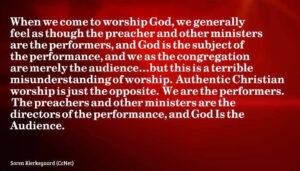
In a previous article entitled Know Your Weapons, I mentioned how God has used various animals to teach me things on more than one occasion. In this article, we’re gonna dig into another one of them. I ask you to bear with me as I give you a bit of personal information, because it’s important to the point I want to make.
I’ve owned cats (aka Mobile Dust-Bunny Generators) for almost my entire life and am a dyed-in-the-fur cat lover. Now all you dog lovers just collectively groaned inwardly and thought, “Oh, no! He’s one of them!” Not to worry, we’re actually going to talk more about dogs than cats. Those of you who groaned are now going, “Huh!?“😀
Bear with me. You’ll love this!
A True Worshipper

Tiger perched on his chair next to my desk while I worked
I adopted both him and his fraternal-twin-brother Simba, my pure-white domestic shorthair, when they were about 8 weeks old. Tiger’s only contact with other animals for his entire life was Simba and later, our blue lynx-point Siamese, Catchou.
Nothing particularly significant so far.
What made Tiger somewhat unique was that he thought he was a dog. While he had all the physical attributes of a cat, he definitely thought and acted like a canine. Examples? He slavishly adored me, was aggressively affectionate, was jealous of my wife when she cuddled with me, played fetch (he taught himself!), immediately came when I called him, and generally could not stand to be much farther than a few feet from me, if that far, ever.
The #1 priority in Tiger’s fuzzy little mind was this: to be in Daddy’s presence and receive his touch! That is what he lived for, what he craved way above and beyond his normal kitty needs for food, water, and a clean litter box. That beast absolutely adored me and he jumped at every opportunity to express it with total disregard of situational appropriateness — and express it insistently, I might add!

Tiger on the footrest of my recliner
You could see what he was thinking by the look written all over his face: I’m with Daddy and all is right in my fuzzy little world!
Those of you who own dogs have experienced this same kind of devotion and your fur-babies’ intense need to be with you. They sleep on your beds, sit in your laps, and jump up on you, wagging their tails when you return from wherever you just went. Your performance or lack thereof is never of concern to them. In their little minds, you hang the moon and the stars!
For several years, I found all this attention to be annoying, especially since Tiger kept pushing Simba out of the way to get to me. But after awhile, I finally got what God was trying to show me through him:
Tiger was a true worshipper!
What I mean by “true” is that he was the genuine article. I was his raison d’être; and his hairy little existence revolved around worshipping Daddy. Yes, he did other stuff — eating, drinking, playing with Simba, etc. — but whenever I was available, he dropped everything else and I became the sole focus of his undivided attention.
God knew I would never willingly own a dog, so He arranged for me to have a cat that would teach me the same lesson any dog owner would immediately grasp.
The Presence is the Difference
A former pastor of mine has a mentoring ministry to pastors throughout Northern Mexico. On one of his trips, as he was discussing worship with one of them, the Mexican pastor exclaimed, “¡La presencia es la diferencia!” The translation is precisely what you would think: “The presence is the difference!”
You will show me the path of life; In Your presence is fullness of joy; At Your right hand are pleasures forevermore.
Psalm 16:11 (emphasis mine)
If we are worshipping for any reason other than to enter into God’s presence, we’ve missed the point — and missed it badly, in my estimation.
Years ago, before I had been properly taught on the topic of worship, I had the same attitude held by many church-goers concerning the musical portion of a service: it was just the warm up to give us something to do before what really counted: the Word of God and the sermon! So I would show up for church late, usually about halfway through the song service.
Then God corrected my thinking through some excellent teaching on worship. What an eye opener! Through my own bullheadedness and ignorance of the Scriptures, I had been depriving myself for years of experiencing God’s presence and the joys of true worship. Now the song service is a joy to me, rather than an optional throwaway that I can take or leave.
The Single Biggest Reason for Worship
Worship is the only reasonable and appropriate response to God’s gift of Jesus on the cross. After all He has given us, who are we to be reticent in being appreciative of Who He is and thankful for what He’s done?
I beseech you therefore, brethren, by the mercies of God, that you present your bodies a living sacrifice, holy, acceptable to God, which is your reasonable service
Romans 12:1 (emphasis mine)
The underlined words are the phrase logikos latreia in the Greek. Here’s how some other translations deal with these two words:
- logikos latreia
- Thayer’s Greek Lexicon:
reasonable sacred services - New American Standard Bible:
spiritual service of worship - New International Version:
spiritual act of worship - Weymouth Translation:
a reasonable act of worship - Revised Standard Version:
spiritual worship - Amplified Version:
reasonable (rational, intelligent) service and spiritual worship
Worship vs. Thanksgiving
While, as we’ve already covered in an earlier article in this series, thanksgiving can and certainly is an integral part of our worshipping God, there is a difference:
- Thanksgiving is all about what God has done for us and others.
- Worship is about Who He is, more specifically His character and divine attributes.
So when we worship, it’s not about anything having to do with us; it’s everything having to do with Him.
So what are the attributes and character of God? Well, I made a fairly comprehensive list in another article here for starters. All of those and whatever else you discover in God’s Word are definitely in play here.
So we worship God for being good (holy), loving, just, faithful, almighty, redemptive, merciful, and gracious as well as whatever else that is good that we can come up with. One of the phrases frequently cited when OT Jews were described as worshipping God in the beauty of holiness is “The Lord is good! And His mercy endures forever!”
The Foundation of Worship
 There are hardly any verses in the New Testament concerning worship. Why is this? Because anything in the Old Testament which has not been superseded by the New simply carries over intact. So most of the Scripture references we’ll be using are from the OT.
There are hardly any verses in the New Testament concerning worship. Why is this? Because anything in the Old Testament which has not been superseded by the New simply carries over intact. So most of the Scripture references we’ll be using are from the OT.
But all true worship, like prayer, starts with submission to the lordship of Jesus Christ — not just in our initially receiving salvation, but in our progressively becoming more and more like Jesus in our thought processes, attitudes/worldview, and behaviors (see Romans 12:2).
That progression implies we are:
- Actively abandoning our earthly idols to serve the One True God.
- Promptly responding in obedience with a good heart to things God has told us to do and not to do.
- Prioritizing time with Him in prayer and the Word in our daily lives.
- Not hardening our hearts in unforgiveness and resentment towards those who have wronged us.
- Not judging as “less than” those who are devoted to a lifestyle or doctrinal position we disagree with.
- Actively engaged in our love relationship with the Most High God, rather than Him being a religious accessory to our lives that we pull out and dust off, only to be seen on Sundays.
In summary, the vast majority of the church goers within the US are not experiencing — and will not experience short of a major revival in their hearts — true worship.
Why?
Because worship is a lifestyle flowing out of our love relationship with Jesus, not a religious act we do only on Sundays.
Here’s what Jesus said on the matter:
These people draw near to Me with their mouth, and honor Me with their lips, but their heart is far from Me. And in vain they worship Me, teaching as doctrines the commandments of men.
Matthew 15:8-9
Expressions of Worship
Hand Raising
Interestingly, the only worship posture mentioned in both testaments is that of raising our hands:
Lift up your hands in the sanctuary, and bless the Lord.
Psalm 134:2I desire therefore that the men pray everywhere, lifting up holy hands, without wrath and doubting;
1 Timothy 2:8
So what’s interesting about this? In every culture and society on this planet, raising one’s hands is a sign of surrender. And humble surrender to the lordship of Jesus Christ in our lives on a daily basis — not just that single event which caused you to receive the New Birth — is what God is looking for in a worshipper.
We ourselves despise sycophants and brown-nosers, people who kiss up to the boss to curry favor but secretly despise them and would be the first to stab that boss in the back, given the right opportunity. Are we really so delusional we think the omniscient God of the Universe — who knows the heart and mind of every human — will not know that we’re faking our submission to Him?
Has the Lord as great delight in burnt offerings and sacrifices as in obeying the voice of the Lord? Behold, to obey is better than sacrifice and to heed than the fat of rams. For rebellion is as the sin of witchcraft and stubbornness is as iniquity and idolatry…
1 Samuel 15:22-23a
So the bottom line is this: if we are not submitted to Him, we can try to worship, we can simulate worship, we can pretend to worship, we can look like we are worshipping, but all we’re really doing is going through the motions, wasting precious time and good air.
Our Worship is Loud
While God is perfectly willing to receive worship offered by His children at any volume level circumstances and our boldness permit, the consistent thread throughout the OT concerning worship is this: rowdy and unrestrained abandon devoid of any concern for what other people may think about us.
Praise Him for His mighty acts; Praise Him according to His excellent greatness!
Psalm 150:2
The Hebrew word for “praise” used in this verse is the word halal:
- praise (halal)
- to shine, to be boastful of God, to make a fool of oneself, to act like a madman
This word coupled with the suffix -yah — meaning God — is where we get the word hallelujah.
As you can see, this kind of behavior is a far cry from what we see in most American church services outside of the charismatic and Afro-American communities.
Why is that?
Well, the word “according” implies the concept of “in proportion to.” So we can safely retranslate this phrase as saying “praise Him in proportion to His excellent greatness.” From this we can establish a fundamental truism:
The degree we worship Him is directly proportional to the degree we perceive His excellent greatness.
Jesus Himself confirms this concept with the following, a verse contextually tied to the concept of worship:
Therefore I say to you, her sins, which are many, are forgiven, for she loved much. But to whom little is forgiven, the same loves little.
Luke 7:47
All this then begs the question: How big is your God?
The Role of Music
God Created It
Where were you when I laid the foundations of the earth? Tell Me, if you have understanding. Who determined its measurements? Surely you know! Or who stretched the line upon it? To what were its foundations fastened? Or who laid its cornerstone, when the morning stars sang together, and all the sons of God shouted for joy?
Job 38:4-7
The Hebrew word for “sang” in verse 7 is the word ranan and the word for shouted is ruah:
- sang (ranan)
- to sing for joy, to shout joyfully, to give a ringing cry, to rejoice
- shouted (ruah)
- to shout in triumph, to shout for joy, an ear-splitting noise
Again, the concept of rowdiness in worship rears its head.😀
Heaven’s Worship Leader
Music is so important to God that He created a special being just to lead worship in heaven:
How you are fallen from heaven, O Lucifer, son of the morning!…
Isaiah 14:12a
The name “Lucifer” literally means “light bearer” and comes from the root word halal we’ve already discussed earlier. Another verse gives us further insight:
…Thus says the Lord God: “You were the seal of perfection, full of wisdom and perfect in beauty. You were in Eden, the garden of God; every precious stone was your covering: the sardius, topaz, and diamond, beryl, onyx, and jasper, sapphire, turquoise, and emerald with gold. The workmanship of your timbrels and pipes was prepared for you on the day you were created.
Ezekiel 28:12b-13 (emphasis mine)
Virtually every Bible scholar agrees that this passage is a description of Lucifer despite the fact Ezekiel appears to be addressing the King of Tyre. The last half of verse 13 implies that music instruments were actually built into his body.
And then Lucifer fell, became Satan, and the rest is history.
Music: A Spiritual Force
And the Lord said to Moses:…”Now therefore, write down this song for yourselves, and teach it to the children of Israel; put it in their mouths, that this song may be a witness for Me against the children of Israel. When I have brought them to the land flowing with milk and honey, of which I swore to their fathers, and they have eaten and filled themselves and grown fat, then they will turn to other gods and serve them; and they will provoke Me and break My covenant.
Then it shall be, when many evils and troubles have come upon them, that this song will testify against them as a witness; for it will not be forgotten in the mouths of their descendants, for I know the inclination of their behavior today, even before I have brought them to the land of which I swore to give them.”
Therefore Moses wrote this song the same day, and taught it to the children of Israel.
Deuteronomy 31:19-22
Music is a spiritual force designed by God to carry a message straight to our hearts.
And Satan knows this better than anyone but God Himself. It is his intrinsic link to music that drives him to dominate the music industry and direct its content and artists towards idolatry, sin, arrogance, violence, self-seeking, and rebellion against authority. Here’s just a few obvious samples of his successes to date:

- Sympathy For The Devil — The Rolling Stones
- Running With The Devil — Van Halen
- Black Magic Woman — Santana
- Witchy Woman — The Eagles
- Highway To Hell — AC/DC
- Fire — Arthur Brown
- Hellhound On My Trail — Robert Johnson
- I’m OK — Styx
- The Rites of Spring — Igor Stravinsky
- In the Hall of the Mountain King — Edvard Grieg
And that doesn’t even begin to include a host of other musical compositions — and even entire genres, like gangsta rap — which are glorifying the worst that Hell has to offer.
Because of this, musicians — Christian and non-Christian alike — have a huge spiritual target painted on their chests and are especially vulnerable to pride, arrogance, and rebellion, because the enemy knows precisely how to push their buttons.
Music: A Blessing From God
Gladness is taken away, And joy from the plentiful field; In the vineyards there will be no singing, nor will there be shouting; No treaders will tread out wine in the presses; I have made their shouting cease.
Isaiah 16:10
The context of this verse is God pronouncing judgment over the nation of Moab for their arrogance and idolatry. And part of what God invokes over them is a removal of song, so we can legitimately state that God views someone not having music as accursed.
Jesus Sings With Us
For both He who sanctifies and those who are being sanctified are all of one, for which reason He is not ashamed to call them brethren, saying: “I will declare Your name to My brethren; in the midst of the assembly I will sing praise to You.
Hebrews 2:11-12 (emphasis mine)
Various Methods of Worship
Raising Your Hands
We’ve already touched on this one earlier, but I would like to cite one more verse on this:
Surely the righteous shall give thanks to Your name; the upright shall dwell in Your presence.
Psalm 140:13
The Hebrew word for “give thanks” in this verse is yawdah:
- give thanks (yawdah)
- to raise the hands in thanksgiving and give loud praise
And a related word not used in this passage, but elsewhere:
- tehillah
- to sing a song or hymn of praise
Sing, Shout & Give Thanks
Oh come, let us sing to the Lord! Let us shout joyfully to the Rock of our salvation. Let us come before His presence with thanksgiving; Let us shout joyfully to Him with psalms.
Psalm 95:1-2
The Hebrew words for “sing” and “shout” are the words ranan and ruah, respectively, both of which we’ve already discussed above. The word I want to point you to here is a new one for “thanksgiving:” towdah:
- thanksgiving (towdah)
- to stretch out the hand in agreement, to offer a sacrifice of thanksgiving
Prostrating Yourself
- shachah
- To bow down, to prostrate oneself before a king or ruler
The vast majority of the words translated as “worship” in Old Testament are this word. The Greek word proskuneo in the New Testament means the same thing and is also translated as universally as “worship”
And again, we have an inescapable implication of submission to His authority.
Giving a Mighty Shout
Blessed are the people who know the joyful sound! They walk, O Lord, in the light of Your countenance. In Your name they rejoice all day long, And in Your righteousness they are exalted.
Psalm 89:15-16 (emphasis mine)
- joyful sound (teruah)
- a mighty shout of joy or war
Teruah is a more powerful form of the already-discussed ruah. The same word is translated “great shout” at the battle of Jericho in the Book of Joshua.
Giving in an Offering
- asah
- to make an offering
For anyone who’s ever questioned a pre-offering teaching about our offerings equaling worship, this should settle that matter.
Musical Instruments
- zamar
- to praise by playing an instrument
For others who have questioned whether an instrumental solo during a worship service was truly worship or just the musician showing off, this should put that issue to rest. Related to this is whether it’s scriptural for a song service to be accompanied by musical instruments at all rather than sung a cappella. This word plus a multitude of verses found throughout the Book of Psalms should resolve that debate once and for all.
Laughing & Expressing Joy
- sashaq
- to laugh, rejoice, make merry
- samach
- to rejoice, to be gladden
For those of you who have wondered whether “laughing in the Spirit” is of God or not, these verses should answer that question.
Dancing
Let them praise His name with the dance; Let them sing praises to Him with the timbrel and harp.
Psalm 149:3Praise Him with the timbrel and dance; Praise Him with stringed instruments and flutes!
Psalm 150:4
- dance (machowl)
- dancing: from the Hebrew word chuwl
- chuwl
- dance; to twist, writhe; to whirl, whirl about
And then we have the instance of David, who God Himself described as a man after His own heart, dancing before the Lord after the restoration of the Ark of the Covenant to Israel from its prior capture by the Philistines:
Then David danced before the Lord with all his might; and David was wearing a linen ephod. So David and all the house of Israel brought up the ark of the Lord with shouting and with the sound of the trumpet. Now as the ark of the Lord came into the City of David, Michal, Saul’s daughter, looked through a window and saw King David leaping and whirling before the Lord ;…
2 Samuel 14-16
- dancing (karar)
- dance; to whirl about
- leaping (pazaz)
- to be nimble; to leap, show agility
So what we have here is David publicly whirling and dancing with pizzazz (sorry, the pun was too tempting to resist 🤣) before God in his underwear. When his wife, Saul’s daughter Michal, saw him she despised him for what she later described as a total lack of royal propriety and dignity.
When David return to the palace to bless his family, he was completely unrepentant and not only rubbed her nose in the fact that God had chosen him over her father, but told her that given similar circumstances in the future, he’d do the same again. Interestingly, the historian writing this account recorded that, after her tantrum, she never bore another child until the day she died, whether through divine judgment or David refusing to lie with her, the Bible simply doesn’t specify.
But this story carries an important caveat for those who would judge others as “less than” for their uninhibited worship practices.
Selah!
Summary
Please note that none of these descriptions of worship in the Bible bear even the slightest resemblance to the rigid, stodgy, and stoic song services found in the vast majority of American denominational congregations on any given Sunday morning.Also please note that none of them are passive attitudes, mental mindsets, or thought patterns. They are all specific acts we perform or postures that we assume, all with our physical bodies.
And what we do with our bodies changes the way we feel and think, which is why energetic worship is an excellent palliative for depression.
God Shows Up When We Worship Him
But You are holy, enthroned in the praises of Israel.
Psalm 22:3And it came to pass when the priests came out of the Most Holy Place (for all the priests who were present had sanctified themselves, without keeping to their divisions), and the Levites who were the singers, all those of Asaph and Heman and Jeduthun, with their sons and their brethren, stood at the east end of the altar, clothed in white linen, having cymbals, stringed instruments and harps, and with them one hundred and twenty priests sounding with trumpets — indeed it came to pass, when the trumpeters and singers were as one, to make one sound to be heard in praising and thanking the Lord, and when they lifted up their voice with the trumpets and cymbals and instruments of music, and praised the Lord, saying: “For He is good, For His mercy endures forever,” that the house, the house of the Lord, was filled with a cloud, so that the priests could not continue ministering because of the cloud; for the glory of the Lord filled the house of God.
2 Chronicles 5:11
So what is the value of God’s presence?
In God’s presence:
- There is fullness of joy
You will show me the path of life; in Your presence is fullness of joy; at Your right hand are pleasures forevermore.
Psalm 16:11 - There is power
The mountains melt like wax at the presence of the Lord. At the presence of the Lord of the whole earth, the heavens declare His righteousness, and all the peoples see His glory.
Psalm 97:5-6Then the Philistines took the ark of God and brought it from Ebenezer to Ashdod. When the Philistines took the ark of God, they brought it into the temple of Dagon and set it by Dagon. And when the people of Ashdod arose early in the morning, there was Dagon, fallen on its face to the earth before the ark of the Lord. So they took Dagon and set it in its place again. And when they arose early the next morning, there was Dagon, fallen on its face to the ground before the ark of the Lord. The head of Dagon and both the palms of its hands were broken off on the threshold; only Dagon’s torso was left of it. Therefore neither the priests of Dagon nor any who come into Dagon’s house tread on the threshold of Dagon in Ashdod to this day. But the hand of the Lord was heavy on the people of Ashdod, and He ravaged them and struck them with hæmorrhoids, both Ashdod and its territory. And when the men of Ashdod saw how it was, they said, “The ark of the God of Israel must not remain with us, for His hand is harsh toward us and Dagon our god.”
1 Samuel 5:1-7 - There is provision
Let God arise, Let His enemies be scattered; let those also who hate Him flee before Him. As smoke is driven away, so drive them away; As wax melts before the fire, so let the wicked perish at the presence of God. But let the righteous be glad; let them rejoice before God; Yes, let them rejoice exceedingly. Sing to God, sing praises to His name; Extol Him who rides on the clouds, by His name YAH, and rejoice before Him. A father of the fatherless, a defender of widows, is God in His holy habitation. God sets the solitary in families; He brings out those who are bound into prosperity; but the rebellious dwell in a dry land. O God, when You went out before Your people, when You marched through the wilderness, selah! The earth shook; The heavens also dropped rain at the presence of God; Sinai itself was moved at the presence of God, the God of Israel. You, O God, sent a plentiful rain, whereby You confirmed Your inheritance, when it was weary.
Psalm 68:1-9 - There is protection and deliverance from harm
Oh, how great is Your goodness, which You have laid up for those who fear You, which You have prepared for those who trust in You in the presence of the sons of men! You shall hide them in the secret place of Your presence from the plots of man; You shall keep them secretly in a pavilion from the strife of tongues.
Psalm 31:19-20There are two other stories from both testaments that should be considered here, but due to space considerations I will only give you the references so you can look them up and read them in your own Bible. The first one is the story of an alliance of three nations attacking Judah during the reign of Jehoshaphat found in 2 Chronicles 20 and the other is the account of Paul and Silas’ arrest and imprisonment in Philippi found in Acts 16:16-40.
The Benefits of Worship
Worship Prepares Our Hearts to Receive From God
- Worship is part of the teaching process
Let the word of Christ dwell in you richly in all wisdom, teaching and admonishing one another in psalms and hymns and spiritual songs, singing with grace in your hearts to the Lord.
Colossians 3:16 - Praise enables us to tap into the joy of our salvation
And in that day you will say: “O Lord, I will praise You; though You were angry with me, Your anger is turned away, and You comfort me. Behold, God is my salvation, I will trust and not be afraid; For YAH, the LORD, is my strength and song; He also has become my salvation.” Therefore with joy you will draw water From the wells of salvation.
Isaiah 12:1-3
Worship Increases/Releases the Anointing of God Upon Those Who Will Minister
- Worship, at least for a time, transformed King Saul
After that you shall come to the hill of God where the Philistine garrison is. And it will happen, when you have come there to the city, that you will meet a group of prophets coming down from the high place with a stringed instrument, a tambourine, a flute, and a harp before them; and they will be prophesying. Then the Spirit of the Lord will come upon you, and you will prophesy with them and be turned into another man. And let it be, when these signs come to you, that you do as the occasion demands; for God is with you.
1 Samuel 10:5-7 - In 2 Kings 3 when Elisha is called upon to prophesy over the alliance between the Northern and Southern Kingdoms in their war against Moab, he calls for a musician to play. After the musician performed what we can safely assume was a worship song of some sort, the anointing came on Elisha and he prophesied.
- In 1 Chronicles 25, we see how King David set aside certain skilled musicians to play and prophesy using their various instruments.
Worship Builds Our Faith
Praise and worship is an excellent means to bring us into agreement with God and build up our faith. Why? Because good worship songs are either outright Scripture quotations or communicate scriptural Truth. When we sing them, we are “confessing” God’s Word over ourselves. I’ve already delved into the value of confessing the Word over ourselves in a previous article, so I won’t repeat myself here. But I will say that the power of music when coupled with us hearing ourselves proclaim God’s Truth to ourselves is a potent combination whose effectiveness cannot be overstated.
Because we are accompanying God’s Truth with music, it is communicating that Truth directly to our hearts, even when our minds may be in turmoil due to FUD (Fear, Uncertainty, Doubt) and anger over our circumstances, when we are confused about who and what we are as human beings and believers, when we are unsure about our future, or are struggling with the Truths that God is really Who He says He is and that He will do what He says He will do for us.
The Sacrifice of Praise
We sometimes end up in circumstances where we find it difficult to worship because of our strong negative emotions, such as fear, anger, resentment, envy, and other emotional turmoil, emotional pain, mental confusion, and/or emotional/physical exhaustion. When such times roll around — and they indeed will regardless of who we are — the solution is that we offer the “sacrifice of praise.”
Therefore by Him let us continually offer the sacrifice of praise to God, that is, the fruit of our lips, giving thanks to His name.
Hebrews 13:15
So let’s unpack this verse a bit:

- offer the sacrifice (anaphero)
- to keep on placing upon an altar
- praise (ainesis)
- thank offering
- fruit of our lips (karpos cheilos)
- fruit born of our speaking mouth
- Giving thanks (homologeo)
- same words
So here’s a little more accurate translation:
Therefore, by Him, let us always be placing a thank offering upon the altar, the words of our mouths agreeing with Him.
The sacrifice of praise takes place when we deliberately choose to worship God even when our flesh is screaming out for us to do anything else. The remarkable thing is that when we do offer that sacrifice, His tangible presence often manifests on the scene and calms all those negative things by bringing us His peace.
It’s crucial for us to remember how there are no tears, disappointments, grief, loss, or other negative circumstances in heaven. The only place we can offer a sacrifice of praise is here on earth and the only time we can do so is when tears, disappointments, grief, loss, and/or other negative circumstances are consuming us. It is our responsibility to steward those moments, reaffirming in our minds and with our bodies the goodness of God, despite how our emotions may rage against the very idea.
Conclusion
So why should we praise and worship God?
- It’s a reasonable response to what He has done for us.
- Though God is always in and with us, worship invites God’s tangible presence onto the scene. In His presence is:
- Fullness of joy and pleasures forevermore
- God’s power & provision
- Protection and deliverance from harm (physical, mental, emotional, spiritual)
- Worship prepares our hearts to receive from God’s Word
- Worship increases and releases the anointing upon God’s ministers so that God can use them to teach and comfort us more effectively.
- It builds and reinforces our faith in God and His Word.
- Worship is an effective response whenever the circumstances of life are exalting themselves against our knowledge of God.
Sounds like a win-win to me!
Thanks for reading!



Excelent article Steve; …..But how do you have an answer to the denomination “Church of Christ” who don’t belive in worshipping with any type of instrument other than the human vocal chords, just because they say there isn’t any mention of instruments in the new testament. Also, I thought the song, “In the Hall of the Mountain King” was just a beautiful instrumental arrangement for an orchestra. Is there some sort of satanic story that goes with that instrumental?
The Church of Christ folks essentially believe if a practice isn’t specifically mentioned in the New Testament, it doesn’t apply to believers, ever. In most cases, that’s a safe assumption. In this case, it isn’t.
There are more than a few things in the NT that supersede the OT. An excellent example of that is grace replacing The Law as the basis for our standing before God. Another example is that under the New Covenant, God is no longer in the real estate business. By this, I mean that His temple is in the hearts of born-from-above believers, not in a physical building at a geographic location we must travel to in order to worship Him, such as a church building, a temple in Jerusalem, or other so-called “holy places.”
But worship is one of the very few cases — if not the only case — where nothing in the NT supersedes the OT practices, they just carry across intact. Now theologians have fought small wars over this issue, so there is room for differences of opinion, but I’m convinced that this is the proper view.
IMHO, there are so many other issues with the Church of Christ’s take on Christianity that worship takes a seat way at the back of the doctrinal bus. But I just can’t agree with them on this specific issue or else we’d both be wrong! 🙂
As far as the In The Hall of The Mountain King is concerned, you can check out the article on it yourself on Wikipedia.com. In that article, it quotes the song’s lyrics:
Since this song is sung by various flavors of trolls, imps, and witches who are discussing how they intend to cook and eat a Christian, I think it’s a pretty safe bet that a satanic connection to this particular piece exists and that the Mountain King himself represents Satan. I had heard this from other people in times past, but had never bothered researching whether it was true until I wrote this article.
Thanks for reading!